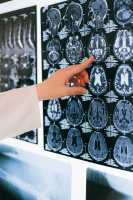Occupational Health, Stress / 17.03.2025
How to Prevent Stress and Burnout From Taking a Toll on Your Health
Stress and burnout often build up without warning. The pressures of daily life gradually wear down both mental and physical health. Ignoring the early signs can lead to exhaustion, anxiety, and even long-term health problems.
What can be done to prevent this spiral? Small changes like improving sleep, setting boundaries, and prioritizing self-care may help, but are they enough?
Some people focus on creating a healthier routine with exercise, balanced nutrition, and relaxation techniques. Others explore alternative approaches like seeking guidance from a holistic medicine practitioner.
This article discusses effective ways to manage stress and take control of your well-being.
(more…)








 Compassion fatigue is when you are exposed to suffering, trauma, or similar negative emotional states in others so much that you become desensitized and indifferent to it. You may also hear it referred to as secondary trauma or vicarious trauma, with many arguing that it’s an inevitable response.
Whichever name you use, it’s a condition in which you feel physically and psychologically exhausted, resulting in a diminished capacity for empathy. This, in turn, has a negative impact on your ability to do your job as a nurse.
Sadly, compassion fatigue is not uncommon in the healthcare field, which is why it’s so important to be alert to the symptoms and understand how to respond when they arise.
Compassion fatigue is when you are exposed to suffering, trauma, or similar negative emotional states in others so much that you become desensitized and indifferent to it. You may also hear it referred to as secondary trauma or vicarious trauma, with many arguing that it’s an inevitable response.
Whichever name you use, it’s a condition in which you feel physically and psychologically exhausted, resulting in a diminished capacity for empathy. This, in turn, has a negative impact on your ability to do your job as a nurse.
Sadly, compassion fatigue is not uncommon in the healthcare field, which is why it’s so important to be alert to the symptoms and understand how to respond when they arise.
















